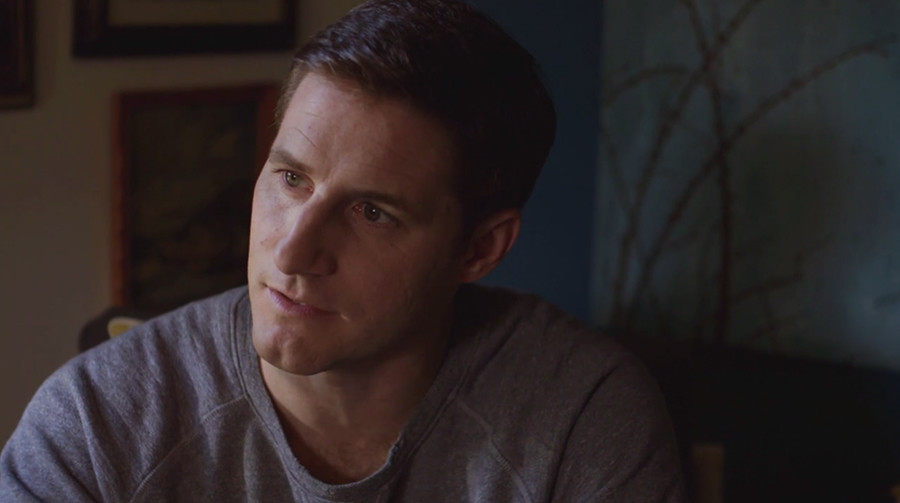Short film delves into officer psyche
Sam Jaeger wrote, directed, and starred in his short film “Plain Clothes” as the lead character Officer Cole.
March 11, 2015
In a mere 10 minutes, the short dramatic film “Plain Clothes,” gets to the heart of the moral dilemma that police officers often face of separating work and personal life.
“Plain Clothes” follows a suburban police officer. Officer Cole (Sam Jaeger) struggles to keep his work and personal life separate when he encounters a criminal on the way to his son’s birthday party. The film begins with Cole talking with his therapist about the mental toll of his job, explaining he must drive around the neighborhood after work to erase all of the horrific things he had witnessed on the job. Even while at home, the challenges of his job continue to haunt him.
Officer Cole never mentally removes his officer uniform, causing emotional pain for him and his family. In the scene, As Cole debates what pasta his wife would enjoy after leaving work one day, he overhears what could be a drug deal and follows the suspect out of the store, abandoning his personal endeavors to pursue his work, even while off the clock. In this scene, Cole follows the suspicious man, and what ensues metaphorically symbolizes the mental struggle Cole faces between balancing work and home.
In addition to playing Cole, Jaeger doubles as a director in this short piece. Along with Jaeger, “Plain Clothes” also features Jennifer Carta, Christopher Weir, Mark Salamon and Maurice Hall.
Jane Kelly Kosek, the film’s producer, and Jaeger said the complexity of characters drew them to the stories.
“Sam and I are drawn to creating complex characters with major obstacles to overcome,” Kosek said.
While Jaeger found that “Plain Clothes” was a necessary story to tell.
“The more I talked with officers, I began to see a lot of similarities between their struggles and those in the military,” Jaeger said. “We’re just becoming aware of how deeply our soldiers are impacted by PTSD, but what about our officers here at home? There are terrifying things they deal with while the rest of us are sleeping, yet no one talks about the impact on them. I felt it was a conversation worth having.”
Despite the short duration of the film, Jaeger manages to tackle complex social and moral issues, including those pertaining to family and religion. For instance, earlier in the film the therapist asks Cole if he believes in God, and he responds by saying he cannot say due to the number of horrendous acts he witnesses every day.
“In ‘Plain Clothes,’ Cole has to deal with the stress of dealing with criminals at work and the need to establish a happy home life,” Kosek said. “We wanted to examine how hard it must be for Cole to straddle these two very different worlds.”
Jaeger also questioned the difficulty that police officers must have to not bring work home with them.
“How hard is it to deal with the things our officers see?” Jaeger said. “Is it even possible to leave their work behind, or does it infiltrate their relationships with their family? Those were compelling questions to me.”
“Plain Clothes” may not be technically phenomenal — it is weakened by its off-balanced color tone and sound issues — but Jaeger should be applauded for conveying the message he chose. This film opens the window into an untold story of police officers, and in just ten minutes provides a reminder as to the emotional endurance that they must have.
The short film is now available for viewing on Vimeo and YouTube.
A version of this article appeared in the Wednesday, March 11 print edition. Email Sidney Butler at [email protected].
























































































































































